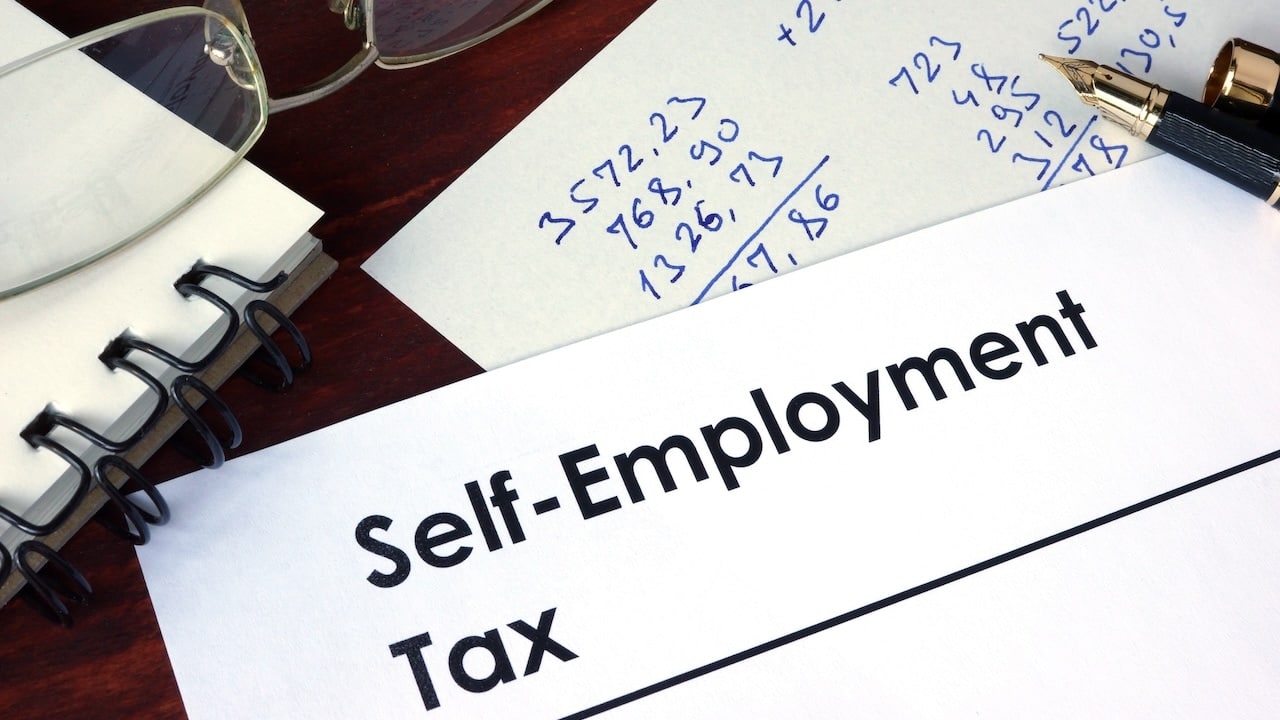
If you’re a self employed individual, you’re probably asking yourself what is self employment tax. This article outlines everything you need to know!
Becoming self-employed is simultaneously an exciting and stressful time. It frees you up from the classic worries of working solely for someone else, and you’re oftentimes pursuing something that you’re truly passionate about.
But the bummer of being self-employed is that you have to figure out your own taxes. Not only do you have to pay federal and state taxes like you did when you were employed by someone else, but you now have to pay a self employment tax as well.
What is self employment tax? Why do you have to pay it? What is it for? Keep reading to get all the information you need on the self employment tax.
What Does It Mean to Be Self-Employed?
The literal definition of self-employment is when someone works for themselves instead of for a separate employer. If you are getting income that isn’t taxed by an employer, this is considered income you’ve gotten through being self-employed.
But what does this actually mean? Some examples would be working as a freelancer, a contractor, owning your own business, etc.
What is Self Employment Tax?
The self employment tax is actually called the Self-Employment Contributions Act tax (SECA tax for short). SECA is comparable to the FICA tax that non-self-employed people are required to pay.
Both SECA and FICA taxes are portions of your income that are taken out to contribute to Social Security and Medicare. The main difference between FICA and self employment tax is that employers pay a portion of your FICA contribution while those who are self-employed are responsible for the entire amount.
This means that you might find yourself paying more in taxes as a self-employed individual compared to having an employer. You’ll no longer have an employer contributing to your Social Security and Medicare via FICA; it’s all on you.
Those who are self-employed have to contribute to Social Security and Medicare all on their own, which is what a self employment tax is.
What is the Self Employment Tax For?
As we said earlier, the self employment tax is a portion of your income taken to contribute towards both Social Security and Medicare.
Of the full tax, 12.4% goes towards Social Security. There is a limit for taxable income for this portion of the tax: it only goes up to the first $128,400 you make. If you make more than that combined (in both self-employment and employed income) then that part of the tax stops at $128,400.
The other 2.9% of the tax goes towards Medicare. There’s no limit for this portion of the tax like there is for the Social Security portion.
How to Report Self Employment Tax
New job, new taxes, new tax paperwork. The self employment tax is based on your total net income for the year. Many people who are self-employed are required, or choose to, pay quarterly taxes. This includes estimates of what you owe both the state and the federal government along with estimates of your self employment tax.
Let’s look at an example to make it a little easier to understand.
Let’s say you made $20,000 from your small business and $30,000 through an employer. Your combined income is $50,000. This is less than the $127,000 threshold, which means it’s all taxable for Social Security.
FICA has already been withheld from your employed income, so you’ll also owe self employment tax on the $20,000 you made from being self-employed. This portion you owe is reported on your 1040 form and will include both the Social Security and the Medicare portions of the self employment tax.
Obviously, this can be confusing even for those of us who are financially inclined. We can help you understand exactly what you owe for your self employment tax and sort out what exactly what you need to report.
Income Tax Deduction and Self Employment Tax
Paying taxes might not seem like it has a lot of benefits at the time, but there are some silver linings to paying taxes to take note of here.
You can get a tax deduction because of self employment taxes. When filing your taxes, you can claim 50% of the amount of self employment tax you pay as a tax deduction for your income taxes.
Let’s look at an example. If you own $2,000 for your self employment tax, then your total taxable income would be reduced by $1,000 ($2,000 * 0.5).
You also can reduce the amount of taxable self employed income by half of the actual self income tax amount before you factor in the self employment tax rate. This can save you hundreds of dollars, so it’s definitely worth understanding or at least talking over with a tax professional.
Understanding Self Employment Tax: Wrapping Up
Freedom from an employer gives you the opportunity to work for yourself, follow your passions, and make your own schedule. However, unfortunately, it doesn’t free you from paying taxes.
While you might find yourself paying more being self-employed vs working for an employer, many people consider it an OK price to pay for all the other benefits they get working for themselves. Paying your taxes works to maintain the country, send kids to schools, and more.
Your self employment tax will contribute to Social Security and Medicare, both of which are essential for you and others as you get older. While it might be hard to have to be the sole contributor as opposed to getting help from an employer, it’s worth it in the long run.
If you have any other questions or are still confused by the initial, “What is self employment tax” question, then don’t hesitate to contact us.